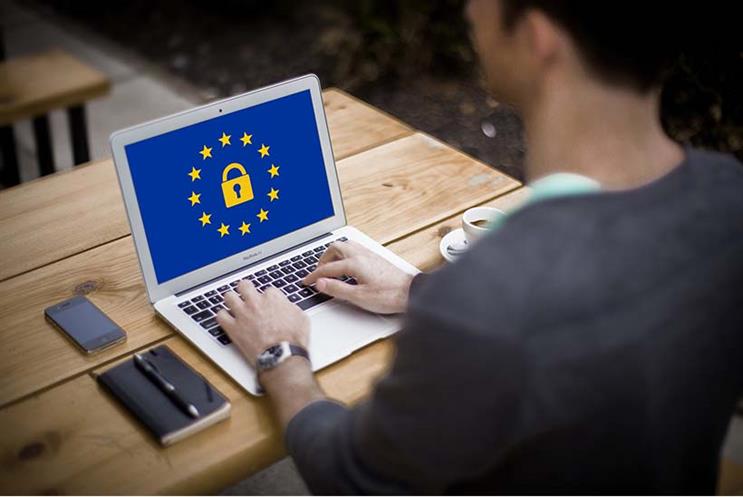
How would you sum up what the new GDPR regulations mean for you as a recruiter in the creative industry?
We see GDPR as a massive opportunity for us to show the creative industry that having top quality relationships with both our candidates and clients is at the forefront of how we do business. Good data protection is the cornerstone of our business policies and practices. GDPR has allowed us to review and improve further on our current compliance processes to ensure that we are following ICO guidelines and are complying with GDPR by 25th May.
What’s your strategy for tackling it so far?
It’s simple. Communication. Being honest and transparent is always something we’ve prided ourselves on so that’s fundamental in how we’re tackling this. Being honest and open with not only our candidates and clients about what we’re doing, but also our staff. Educating our employees on why the legislation has been enforced, why it’s important and ultimately why they should care about it.
We’re not hiding what we’re doing as a business, where we’re storing people’s data and what we’re using it for. That’s the key to getting GDPR ready, don’t panic and hide. Be open, honest and communicate with your network about what this means for them and how you’re protecting their data. GDPR should allow for better relationship building in regards to our candidates, clients and suppliers as transparency around the data we store is key.
As a business leader, it is critical to ‘crush’ any scaremongering amongst our staff and to encourage best practice, ensuring that all employees fully understand the legislation and their role in continuing to ensure compliance is still adhered to.
What are the key challenges you’re facing?
It can become a challenging time for a business when a new legislation is enforced (especially one that is data specific) as we collect and process data everyday as a recruitment business. We have been reviewing and streamlining our processes and the way that we work in preparation for 25th May, to ensure we are ready in good time. Ensuring that our employees are fully trained on the changes to come is vital, as human error could possibly be our biggest risk. I’m sure this is the case for many other SMEs.
As a business leader, it is critical to ‘crush’ any scaremongering amongst our staff and to encourage best practice, ensuring that all employees fully understand the legislation and their role in continuing to ensure compliance is still adhered to. As mentioned, we hold vast amounts of data, therefore reviewing the data we already held in order to establish what is necessary and what isn’t has also been a challenge over the past months. Thanks to GDPR, erasing a lot of our old data has enabled us to work more quickly and efficiently as we are much more aware of what data we have stored and more importantly, why we have it!
How do you think GDPR will change how you work?
We, as an industry, should have been following these processes from the beginning, and as a recruitment agency it’s our responsibility to ensure that we’re at the forefront of the GDPR and that we’re using best practices. Ultimately, if we’re not doing things properly then why should our clients trust us? The only thing that’s changed for us is streamlining the processes we already have in place and bringing our employees along the journey with us so they’re educated, confident and in control of what needs to be compliant.
How has it impacted on you so far? What have you learned?
We’re an industry of ‘hoarders’ and we have a lot of data that we don’t actually need. We want to keep every single nugget of information we have on every single thing we’ve ever done and we’ve all been holding on to it for years because we’re afraid to let it go! It’s unnecessary. We just need to have a clean database of people that are interested in staying in contact with us and are interested in our opportunities. We don’t need to hold on to a CV that someone sent us 10 years ago and I’m sure that person would not want their out of date details stored. GDPR allows us to ensure we are keeping our database up to date, relevant and clean, which has been a task. However, this is now built into the fabric of our business.
Can you spot any opportunities arising from the new regulations?
There are too many to list. However, fundamentally, this is an opportunity to reset the system and work with candidates and clients who are engaged and keen to continue our partnership. It’s really important not to panic and see this an opportunity rather than a threat. As Elizabeth Denham, commissioner, ICO, said: ‘If you feel uncomfortable about asking consumers to do something, then you probably shouldn’t be doing it.’ So the industry needs to see this as an opportunity to rethink the way they’re communicating with their consumers, and also how they’re using this to build the best possible relationships with them.
Marketers are going to find that their roles are faster and more efficient because they’re dealing with more and more clean data and engaging with consumers that actually want to hear from them.
What impact do you think GDPR will have on professionals working in the marketing, digital and creative industry? How will it change how marketers work?
We’re currently overwhelmed with the sheer amount of data we can access about consumers and the almost limitless ways in which we can use it. GDPR is going to change the entire marketing landscape. Marketers are going to have to rethink how they do everything after 25th May but with , a lot of clever campaigns will be coming our way.
Marketers are going to find that their roles are faster and more efficient because they’re dealing with more and more clean data, therefore engaging with consumers that actually want to hear from them. The challenge will sit in persuading new consumers to sign-up and engage with your business.
How can marketers keep abreast of the GDPR?
Follow the rules. There’s no cutting corners with this legislation. So, do your research and make sure you put good solid processes in place to avoid any hiccups. Plus we mentioned educate your employees so that they understand what they can and can’t do and the impact this is going to have on their roles. It’s all too easy to fall back into bad habits but it’s really important that everyone realises this isn’t just a tick boxing exercise, it’s the new norm and it’s a really positive opportunity for genuine customer engagement.









